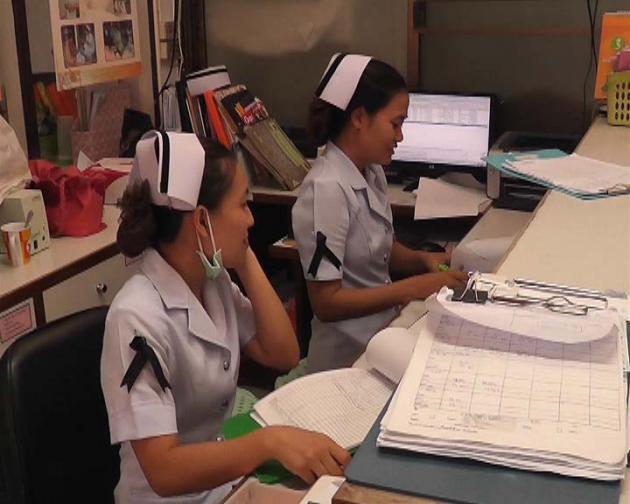Dr. Niparat Sripai has decided to quit her job at the Ban Fang Hospital in Thailand’s northeastern province of Khon Kaen because she believes the recently-introduced Pay for Performance (P4P) scheme in the country’s public healthcare sector will negatively impact the attitudes of medical workers towards their patients.
“I am afraid that with performance-based pay, doctors will start looking at their patients as if they were products,” she said.
The P4P will award extra wages to medical workers at state medical facilities based on their performance. The budget for the P4P comes from the fund that had long been reserved for doctors, pharmacists, dentists and nurses working in rural or remote areas.

Over the past year, Niparat has worked diligently in Khon Kaen’s rural zone. She was there as a general-medicine practitioner under the One Doctor, One District project (Odod). According to the Rural Doctors Society, participants in this project receive grants for studying medicine and once they graduate, they have to serve at state hospitals or the equivalent for 12 years and return 2 million baht ($68,000) to the project.
Since the amount of money involved is quite large, participants usually stay till the end.
“But now, at least two participants have decided to quit,” the society’s president, Kriengsak Vacharanukulkiet, said.
One of them is Niparat. “I think I had better resign now and apply for a job at a private hospital,” the young doctor said. “I will need to find money to pay back the project.”
She said she was not happy with the P4P concept because it would shake doctors’ ethics and ideology.
“As I was born in Ban Fang, I want to return and work for the people here. When I work, my priority is not money,” she said.
Niparat said she believed that the special allowance for rural doctors were enough to cover her living expenses, but P4P was going to change that.
“If all medical workers focus on performance, there is a risk that they will become less caring. The ethics of good teamwork may be gone. I don’t want to see this happen. We have voiced our concerns but the government simply does not listen,” Niparat said. She submitted her resignation Tuesday, one day after P4P came into effect.
Meanwhile, medical staff and personnel at Somdet Phra Yupparat Kuchinarai Hospital in Kalasin yesterday wore black ribbons and put up signs objecting to the P4P concept. Deputy director Dr. Sirichai Namthassanee said the black-ribbon campaign was to call for the Public Health Ministry to review this policy as rural hospitals were already suffering from manpower shortages. He said the previous model of paying hardship allowance actually helped attract many doctors and specialists to work in rural hospitals over the past four or five years, and actually benefited the people.
By Kawintra Jaiseu, Panyaporn Saithong and Poungchompoo Prasert
(The Nation)
-
Articles by Korea Herald


















![[KH Explains] Hyundai's full hybrid edge to pay off amid slow transition to pure EVs](http://res.heraldm.com/phpwas/restmb_idxmake.php?idx=652&simg=/content/image/2024/04/18/20240418050645_0.jpg&u=20240418181020)

![[Today’s K-pop] Zico drops snippet of collaboration with Jennie](http://res.heraldm.com/phpwas/restmb_idxmake.php?idx=642&simg=/content/image/2024/04/18/20240418050702_0.jpg&u=)